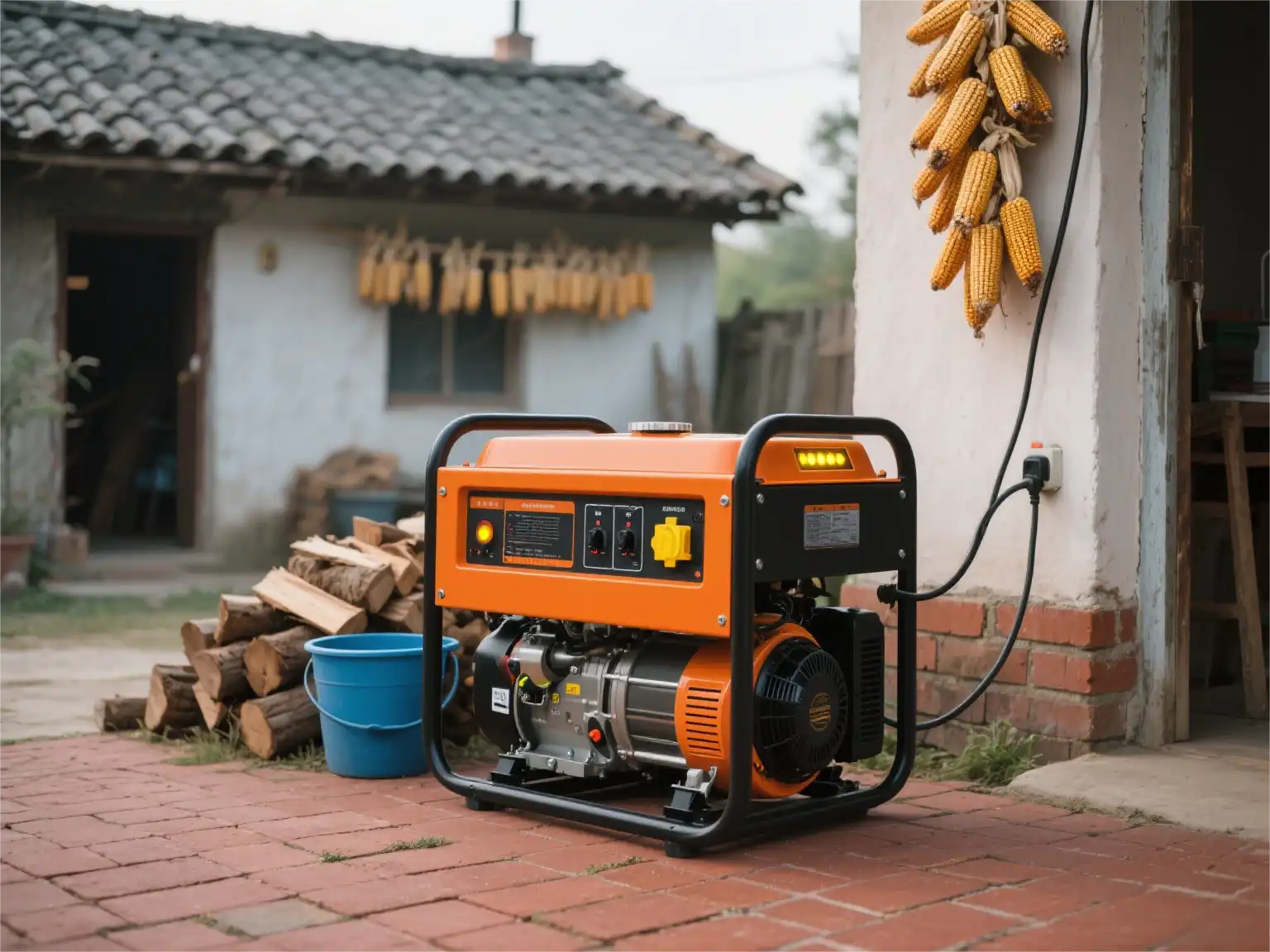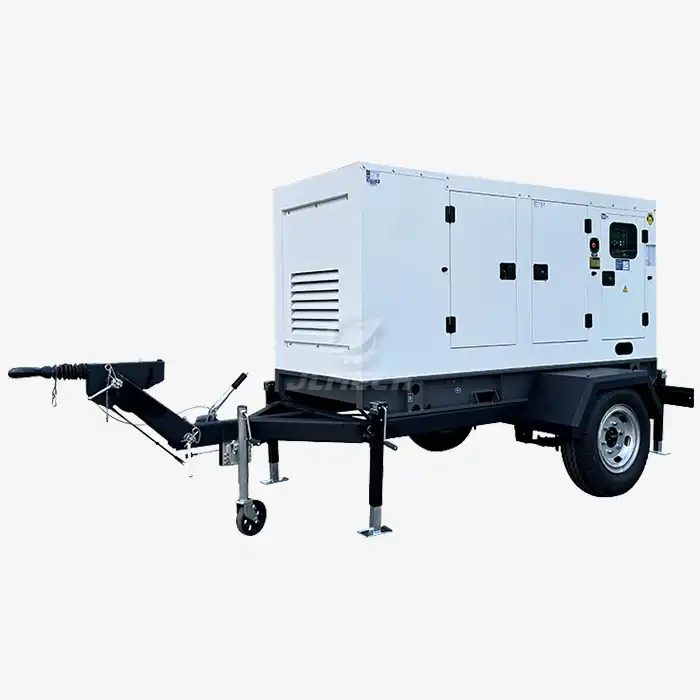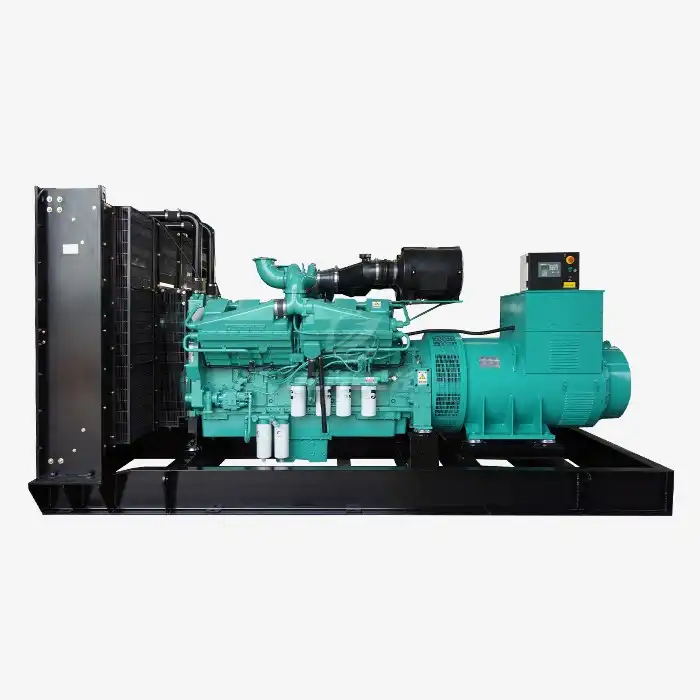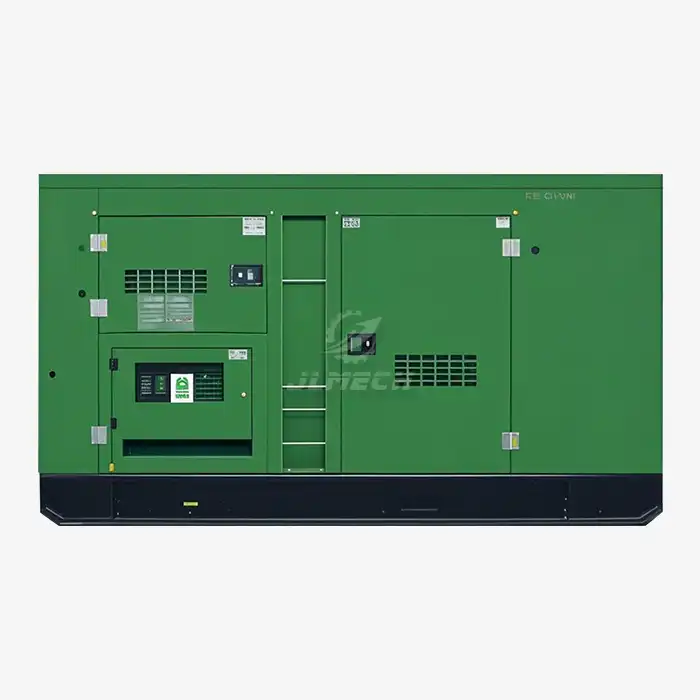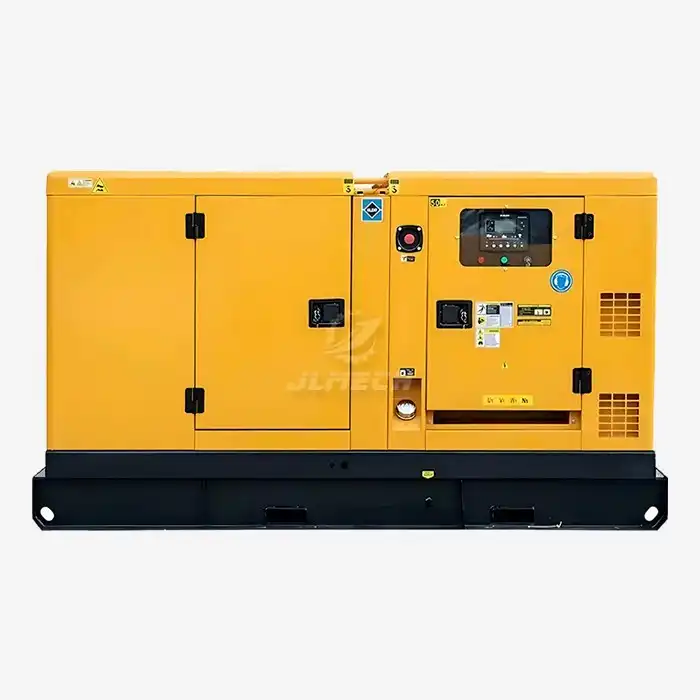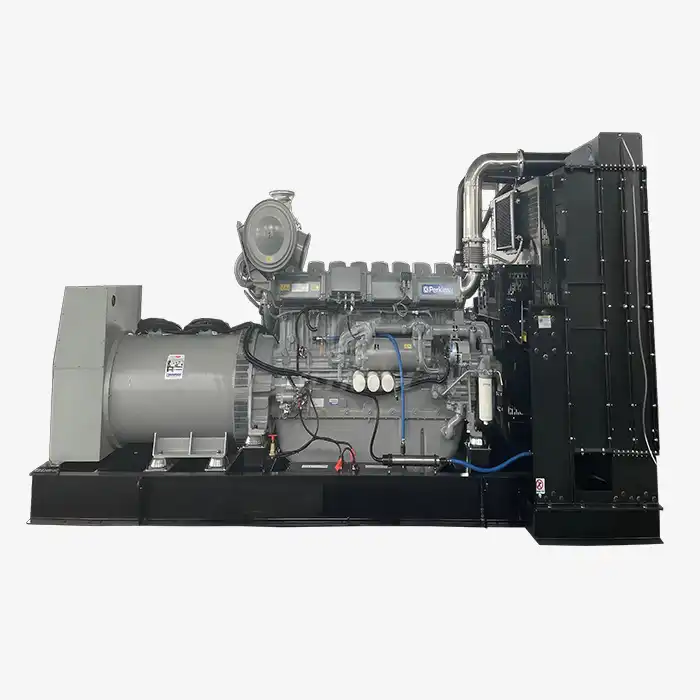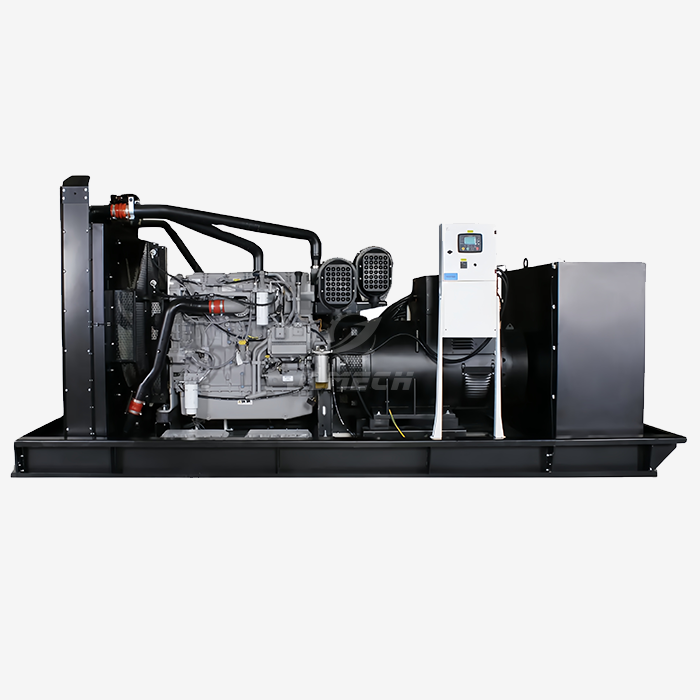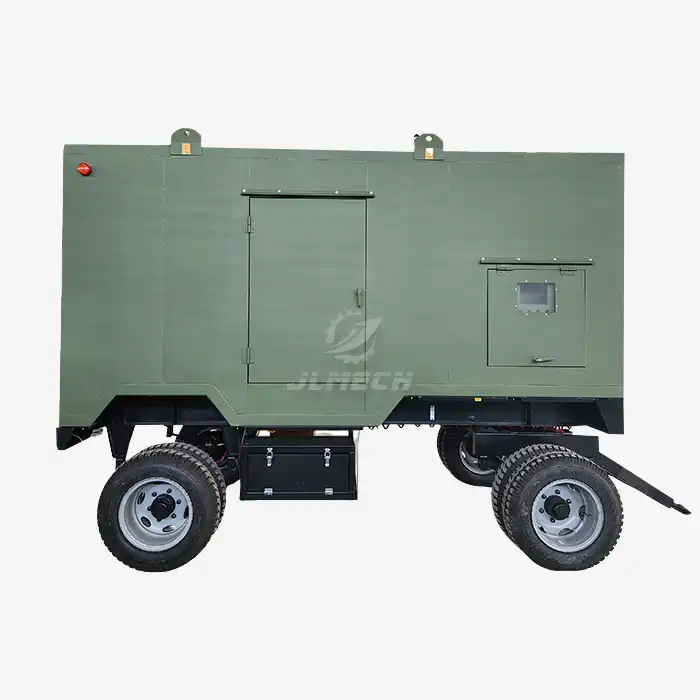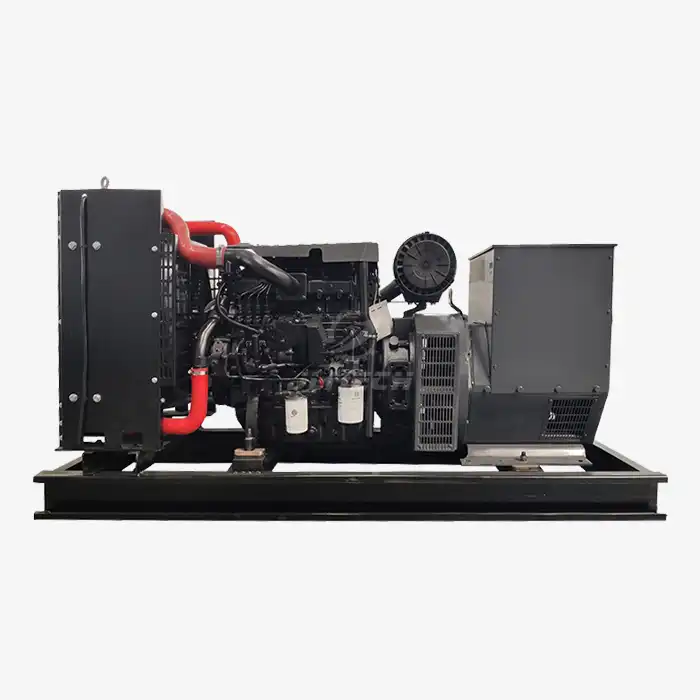Understanding load fluctuations in power generation
Load fluctuations in power generation refer to the variations in electrical demand placed on a generator over time. These changes can occur due to various factors, such as equipment cycling on and off, sudden increases in power consumption, or changes in operating conditions. Understanding these fluctuations is essential for proper generator sizing and operation.
Types of load fluctuations
Load fluctuations can be categorized into several types:
- Steady-state variations: Gradual changes in load over extended periods
- Transient spikes: Sudden, short-duration increases in power demand
- Cyclical loads: Regular patterns of increasing and decreasing power consumption
- Step changes: Abrupt shifts in load, often caused by large equipment starting or stopping
Each type of fluctuation presents unique challenges to generator stability and requires specific strategies to manage effectively.
Impact of load fluctuations on generator performance
Load fluctuations can affect generator performance in several ways:
- Voltage and frequency variations
- Increased fuel consumption
- Higher mechanical stress on components
- Potential for overloading or underloading
- Reduced efficiency and increased emissions
These effects can lead to decreased lifespan of diesel generator for home, increased maintenance requirements, and potential power quality issues for connected equipment.
Key components ensuring generator stability
Several critical components work together to maintain generator stability under varying load conditions. Understanding these elements is essential for selecting and maintaining a reliable power generation system.
Voltage regulator
The voltage regulator plays a crucial role in maintaining stable output voltage despite changes in load. It adjusts the generator's excitation current to compensate for voltage fluctuations, ensuring consistent power quality for connected equipment.
Governor system
The governor system controls the engine speed and fuel input to maintain a constant frequency output. A responsive governor can quickly adjust to load changes, preventing under- or over-frequency conditions that could damage equipment or cause system instability.
Control systems and monitoring equipment
Advanced control systems and monitoring equipment provide real-time data on generator performance, allowing for rapid response to changing conditions. These systems can include:
- Load-sensing algorithms
- Automated load shedding capabilities
- Power factor correction
- Remote monitoring and control features
Jlmech's diesel generators incorporate state-of-the-art control systems to ensure optimal performance under varying load conditions. Our engineers continually refine these systems to meet the evolving needs of our diverse customer base.
Alternator design and quality
The alternator's design and construction quality significantly impact its ability to handle load fluctuations. Factors such as winding design, insulation class, and cooling systems all contribute to the diesel generator for home alternator's stability and durability under changing load conditions.
Optimizing generator performance for varying demands
Ensuring optimal generator performance under fluctuating loads requires a multifaceted approach that combines proper sizing, regular maintenance, and strategic operational practices.
Proper generator sizing and load management
Selecting the right size generator for the expected load profile is crucial. Oversized generators may operate inefficiently under light loads, while undersized units risk overloading and instability. Implementing effective load management strategies, such as load prioritization and sequencing, can help maintain stable operation during peak demand periods.
Regular maintenance and monitoring
Consistent maintenance is essential for preserving generator stability. This includes:
- Regular oil and filter changes
- Fuel system inspections and cleaning
- Battery maintenance
- Periodic testing of control systems and protective devices
- Monitoring of key performance indicators
Jlmech offers comprehensive maintenance programs tailored to each customer's specific needs, ensuring optimal performance and longevity of our diesel generators.
Fuel quality and storage considerations
High-quality fuel is crucial for stable generator operation. Poor fuel quality can lead to combustion issues, reduced efficiency, and increased wear on engine components. Proper fuel storage and regular testing can help prevent these problems and ensure reliable performance under varying load conditions.
Environmental factors and generator placement
Environmental conditions such as temperature, humidity, and altitude can affect generator performance. Proper placement and ventilation are essential for maintaining optimal operating temperatures and ensuring adequate air flow for combustion and cooling.
Jlmech's diesel generators are designed to excel in diverse environmental conditions. Our range includes models suitable for diesel generator for home use as well as industrial applications in challenging environments. With AC outputs ranging from 20 to 3000 KW and rated AC voltages of 110V, 220V, and 380V, we offer solutions for a wide array of power needs. Our generators operate at frequencies of 50Hz or 60Hz, with engine speeds from 1500 to 3000 RPM, catering to both single and three-phase requirements.
We provide both silent and open frame types, with engine configurations ranging from 3 to 16 cylinders. All our units feature water cooling and electric starting systems. For customers with specific needs, we offer OEM/ODM customization options. Our generators are certified to meet CE, Euro 5, EPA, and CARB standards, ensuring compliance with global regulations.
For projects requiring mobile power solutions, our movable diesel generators are engineered for versatility. These units feature reinforced frames, all-terrain wheels, and compact designs, making them ideal for construction sites, remote mines, farms, and event venues. With 52 engineers and 27 senior engineers refining every design, automated testing lines, and a 2-year warranty covering both mechanical and electrical components, Jlmech stands as a trusted partner in power generation solutions.
Conclusion
Maintaining diesel generator stability under fluctuating loads requires a comprehensive understanding of the factors involved and a proactive approach to generator selection, operation, and maintenance. By considering the various components that contribute to stability and implementing strategies to optimize performance, users can ensure reliable power generation across a wide range of applications.
For industrial, commercial, and residential customers seeking reliable power solutions, Jlmech offers a range of high-quality diesel generators designed to meet diverse needs. With our expertise in power generation technology and commitment to customer satisfaction, we provide generators that deliver stable performance even under challenging load conditions. Whether you require a diesel generator for home backup power or a robust industrial power solution, our team is ready to assist you in finding the perfect match for your needs.
To learn more about our generator products and how they can meet your specific power requirements, please don't hesitate to contact us at skala@whjlmech.com. Our experienced team is ready to provide expert advice and customized solutions to ensure you have the most stable and reliable power generation system for your application.
References
1. Smith, J. (2022). "Diesel Generator Stability: Factors and Solutions." Power Engineering Journal, 45(3), 78-92.
2. Johnson, R. et al. (2021). "Load Fluctuation Management in Diesel Generator Systems." IEEE Transactions on Power Systems, 36(4), 3215-3228.
3. Brown, A. (2023). "Optimizing Diesel Generator Performance for Variable Load Applications." Energy Conversion and Management, 258, 115477.
4. Garcia, M. and Lee, K. (2022). "Environmental Impacts on Diesel Generator Stability." Journal of Cleaner Production, 330, 129751.
5. Thompson, L. (2021). "Advanced Control Systems for Diesel Generator Stability." Automation in Construction, 124, 103554.
6. Wilson, E. (2023). "Fuel Quality Effects on Diesel Generator Performance Under Fluctuating Loads." Fuel, 332, 125757.



